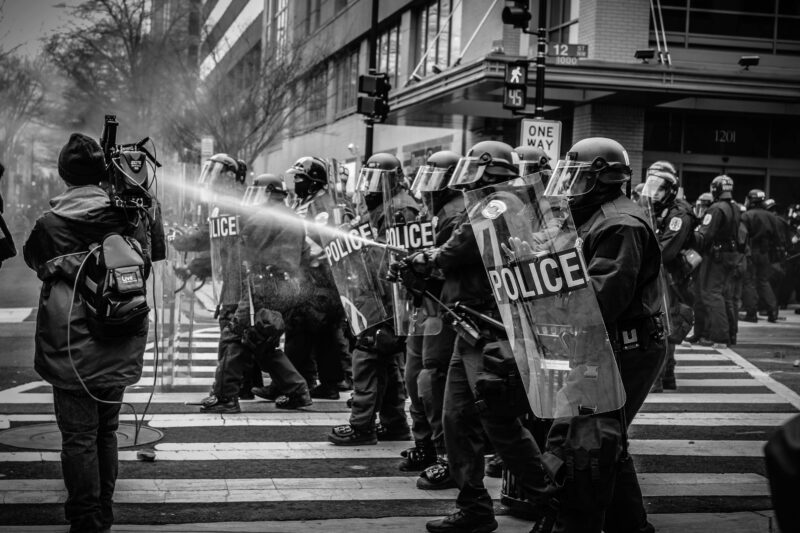The UN gets radical on economic transformation
The world's biggest intergovernmental body says economics is broken, fossil fuel firms have blocked reform, and governments are lying to us.

This week saw the publication of a major new IPCC climate change report,1 focusing on what can and must be done to reverse emissions growth and keep global heating under control. It’s a colossal piece of work: 239 listed authors across almost 3000 pages of research and analysis, covering not just atmospheric science but technology, history, group psychology, institutional and political theory, cultural philosophy, international relations, and so much more.
In short, it is humanity’s roadmap for tackling climate change: all of the technological, social and political options for cutting carbon, rigorously costed, compared and assessed. It is terrifying in its frank assessment of the challenge, but also inspiring in its ultimate message: we know what to do, and we have all the tools and tech we need. We just need to act.
“ Government and business leaders are saying one thing, but doing another. Simply put, they are lying. And the results will be catastrophic.”
This isn't a comprehensive assessment of the report itself (we’ll leave that to Carbon Brief), but we wanted to respond to four points that stood out to us at the Coalition.
The big picture: it’s not too late – yet
First up, the state of play. As the IPCC report makes plain, the window to limit global heating to a “safe” 1.5°C is, for all intents and purposes, over. Even if governments achieve their current climate pledges (which, at the moment, they are not), we will hit 3.0°C of warming before the end of the century – a disastrous outcome that will cost millions of lives and cause untold suffering.
But the bleakness of this possible future must not lead us to despair. Instead, the IPCC tells us that we can – and must – avert disaster through targeted, immediate and radical action. If you boil down those 3000 pages into five (extremely oversimplified) recommendations, this is what’s needed:
- immediately stop building new fossil fuel infrastructure and start to phase out existing stuff
- build massive amounts of renewables, everywhere
- electrify everything – cars, lorries, heating, manufacturing, all of it
- conserve nature, especially carbon sinks like soils, mangroves and rainforests
- invest like crazy in R&D in hard-to-decarbonise sectors like aviation, cement, and steel.
The good news is that all of the above is eminently possible and we already know perfectly well how to do it. Even better, the costs of mitigation are falling fast, and are already much lower than most investors and policymakers are aware; the report even has a fantastic chart which lays out the potential and the likely costs for all the main decarbonisation side by side.
“ When the world’s foremost panel of climate scientists – and the head of the UN – come out and say that economics is broken, fossil fuel majors have deliberately blocked reform and our governments are lying to us – well, that hits different.”
But we don't have time to go slowly
None of the above is easy. But we don’t have enough time to proceed in a piecemeal, incremental fashion; in fact, the IPCC report is amazingly strident in its calls for radical, transformational systemic change – doubly so considering it is written by naturally cautious scientists and watered down by governments.
“Mitigation at the speed and scale required to likely limit warming to 2°C or below implies deep economic and structural changes,” says the report, from “the status quo of a global high-carbon, consumption, and GDP growth-oriented economy… to a low-carbon, energy services, well-being and equity-orientated economy.” (Or, as we like to call it, a green economy.) Furthermore, this “cannot be achieved through incremental change.”
That’s not the only radical statement in the report. The IPCC also argues that:
- changing individual behaviour without systemic reform won’t do enough to tackle climate change;2
- social and economic inequality is a driver of pollution and environmental destruction;3
- colonialism is not only a driver of the climate crisis but also continues to exacerbate the vulnerability of marginalised and oppressed communities;
- and even goes as far as saying that economic degrowth can contribute to improved wellbeing.
We’ve been saying this for years, but it’s another thing to hear such forceful language coming from the diplomatic cloisters of the UN. From sufficiency to wellbeing, from planetary boundaries to inequality, the IPCC report endorses – and in some cases even goes further than – our Five Principles of a Green Economy.
UN points the finger
The IPCC also gets tough with the vested interests and power structures which are profiting from the current system – and blocking real change.
The full report is explicit in naming economics and institutional power as reasons why we’re failing to tackle climate change: “The interaction between politics, economics and power relationships (our emphasis) is central to explaining why broad commitments do not always translate into urgent action.” Perhaps unsurprisingly, this text has been omitted from the “Summary for Policymakers”, where governments can veto text they don’t like.

And the full report has many references to industry lobbying from high-fossil fuel sectors and corporations as a major impediment to action: “the power of incumbent fossil fuel interests… block[s] initiatives towards decarbonization” through “targeted lobbying, doubt-inducing media strategies” and “funding groups opposed to climate policy”. Again, all of this was cut from the summary for policymakers.
As UN Secretary-General Antonio Guterres put it at the report’s launch, “Government and business leaders are saying one thing, but doing another. Simply put, they are lying. And the results will be catastrophic.”
Again, none of this is really new. Greta, Greenpeace and Extinction Rebellion have all said as much. But when the world’s foremost panel of climate scientists – and the head of the UN – come out and say that economics is broken, fossil fuel majors have deliberately blocked reform and our governments are lying to us – well, that hits different.
Social movements are the key to unlocking action
One final and critical thing stuck out to us from the IPCC paper – its emphasis on the power of protest, social movements, and climate activism to achieve real change. It namechecks the Green Deal, Fridays for Future and the campaigning of Alexandria Ocasio-Cortez, and states that climate activists have "played a substantial role in pressuring governments to create environmental laws," – as we saw here in the UK.
As the report makes clear, “collective action by individuals as part of social movements… underpins system change.” Absolutely right, and that’s why our GEC strategy is based around connecting with and catalysing citizen movements through dialogue.
Antonio Guterres went one step further: “climate activists are sometimes depicted as dangerous radicals. But the truly dangerous radicals are the countries that are increasing the production of fossil fuels."
Conclusion
As James Murray put it: “Scientists tell us we need to get to net zero carbon emissions or face catastrophe. Engineers tell us it’s possible. Economists tell us it could benefit everyone.”
So why isn’t it happening? Politics and the fossil fuel industry. And the best response is mass protest from citizens and communities. That’s the message from the world’s scientists and the UN, and we couldn’t agree more. Let’s put democracy to work and build a social contract for systemic economic reform.
- Ben Martin, GEC
Footnotes
Climate jargon alert: the full title is (deep breath) Climate Change 2022: Mitigation of Climate Change. Contribution of Working Group III to the Sixth Assessment Report of the Intergovernmental Panel on Climate Change, often abbreviated to “IPCC AR6 WG III: Mitigation”. Trips off the tongue, doesn’t it?
"Behavioural change not embedded in structural change will contribute little to climate change mitigation."
"Unequal societies may be more likely to pollute and degrade their environments... More equitable income distributions can improve environmental quality."





